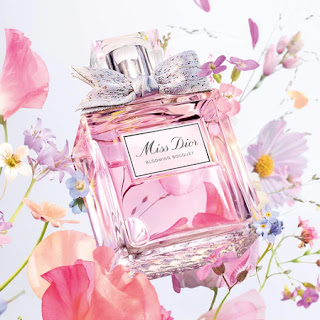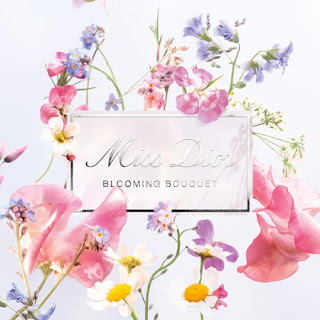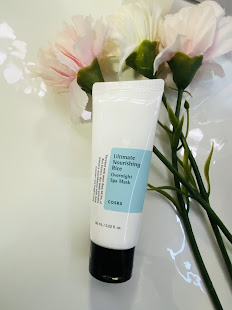Makeup-Artist
Profession

As a makeup artist, you are
responsible
for enhancing the natural beauty of
your clients and transform their
appearance using cosmetics, hair,
and other beauty products.
Your job is to help people look
and feel their best, whether it's
for a special event, a photo shoot,
or just everyday life.
To become a makeup artist, you typically need a
passion for beauty and a strong attention to detail. It helps to be creative
and have a good sense of colour, as well as the ability to work with various skin tones and facial structures. You should also have good communication
skills, as you'll be working with clients to understand their needs and
preferences.
There are several paths you can take to become a makeup artist. Some people learn the
trade through a formal education program at a cosmetology school or makeup
academy. Others may start out as assistants to more experienced makeup artists,
learning on the job and building their skills over time. Still, others may start their own business, either as freelancers or by opening their own salon or studio.
There are many different career options available to makeup artists, depending on your interests and goals. Some may work in the entertainment industry, doing makeup for movies, television shows, and theatre productions. Others may work in the fashion industry, doing makeup for photo shoots, fashion shows, and other events.
Still, others may work in the beauty industry, doing makeup for
weddings, proms, and other special occasions.
Regardless of the specific career path you choose, there are a few key skills that all makeup artists need
to succeed.
These include:
· A good eye for detail:
Makeup artists need to be able
to see small imperfections
and know how to correct them.
· Creativity:
Makeup artists need
to be able to think creatively and
come up with new and innovative
looks.
· Good communication skills:
Makeup artists need to be able to listen to their clients and understand their
needs and preferences.
· Time management skills:
Makeup artists often work on tight deadlines, so they need to be able to manage
their time effectively.
· Attention to hygiene:
Makeup artists need to be diligent about maintaining clean and sanitize workstations, as well as washing their hands frequently to prevent the spread of
germs.
Overall, the profession of a makeup artist can be
extremely rewarding, as you get to help people feel confident and beautiful.
Whether you're working on a movie set or at a wedding, you'll be able to use
your creativity and artistic skills to make a real difference in the lives of
your clients.
Let’s talk and dive deeper…
"So many people ask me all the time: How much can a
person earn as a makeup artist? There is no one answer to this question, as it
depends on the type of services and makeup they provide to their clients, as
well as whether they are full-time or part-time makeup artists. It depends on
various scenarios."
As a makeup
artist, your earning potential can vary widely depending on your level of
experience, the type of work you do, and the location in which you work. Here
is a more detailed look at the earning potential for makeup artists:
According to
the United States Bureau of Labor Statistics (BLS), the median annual wage for
makeup artists was $32,280 in 2019. However, the top 10% of makeup artists
earned more than $79,530 per year, while the bottom 10% earned less than
$18,640.
The type of
work you do can also have a significant impact on your earning potential.
Makeup artists who work in the entertainment industry, such as on movies or
television shows, tend to earn higher salaries than those who work in the
beauty or fashion industries. Makeup artists who work on high-profile
productions or with well-known celebrities may also have the potential to earn
higher salaries.
Your level of
experience can also impact your earning potential as a makeup artist. As you
gain more experience and build a strong portfolio of work, you may be able to
charge higher rates for your services. Many makeup artists also supplement
their income by selling beauty products or offering additional services such as
hairstyling or skin care.
In addition to
your base pay, you may also be able to earn additional income through tips,
bonuses, and other perks. For example, some makeup artists may receive free
products or travel opportunities as part of their work.
It's worth
noting that the earning potential for makeup artists can vary significantly
depending on the location in which you work. Makeup artists in large cities or
urban areas may have the potential to earn higher salaries due to the higher
cost of living in these areas.
Overall, the
earning potential for makeup artists can be quite variable. However, with hard
work, dedication, and a strong portfolio, you may be able to earn a good income
and build a successful career in this exciting and creative field.
How to get started as a makeup
artist?
"To get started as a makeup
artist, you do not necessarily need to have a specific degree. However, gaining
some formal training through a cosmetology or makeup artist program at a beauty
school or vocational school, taking individual classes or workshops, working as
an apprentice or assistant, or self-study can all help build your
skills and knowledge of the industry. The path you choose to become a makeup
artist will depend on your goals, interests, and availability. What is most
important is developing a strong portfolio of work and building a solid
foundation of skills and knowledge."
To get started as a makeup artist, you typically do not
need to have a specific degree. However, having some formal training can be
helpful in building your skills and knowledge of the industry.
There are several ways you can gain training as a makeup artist, including:
Enrolling in a cosmetology or
makeup artist program at a beauty school or vocational school. These programs
typically range from six months to two years in length and cover topics such as
makeup application techniques, colour theory, skincare, and more.
Taking individual makeup
classes or workshops. These can be good options if you want to focus on a
specific aspect of makeup artistry or if you don't have the time or resources
to commit to a full program.
Apprenticeship or assistant
work. Some makeup artists start their careers by working as assistants to more
experienced makeup artists, learning on the job and building their skills and
portfolio.
Self-study. If you prefer to
learn on your own, you can find a wealth of information online, including
tutorials, video courses, and more.
Ultimately, the path you choose to become a makeup artist will depend on your goals, interests, and availability. While having some formal training can be helpful, it is not always necessary to have a degree to succeed in this field. What is most important is developing a strong portfolio of work and building a solid
the foundation of skills and knowledge.
If you like this blog please follow and like this also
comment me on what topic you want me to write and cover a blog for you all
stay blessed and follow me on my socials and stay connected.










.jpeg)


.jpeg)

